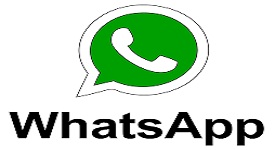LIS Links
First and Largest Academic Social Network of LIS Professionals in India
LIS Links Becoming More Social
Birthdays
Latest Activity
Two Days International Seminar at Government Law College Ujjain (Madhya Pradesh)
March 28, 2026 at 10:30am to March 29, 2026 at 5:30pm
15 hours ago
"Recently, we celebrated National Library Week. We are pleased to share some clips in this regard:https://www.youtube.com/watch?v=NPo4U4CVjMo"
Feb 25
"Recently, the Dept LIS U.O.U Haldwani successfully organized a 10-day MLIS-105 ICT Workshop.
https://www.youtube.com/watch?v=NheFE8Tp3kU"
Feb 25
"2Days Int. Seminar "Libraries and Information Technology:A Global Platform for Multidisciplinary Knowledge Integration&Innovation"28-29 Mar."
Feb 17
International Conference on Libraries for Sustainable Futures: Collaboration, Technology and Knowledge Sharing (Hybrid) at Thiruvananthapuram
February 10, 2026 at 6pm to February 28, 2026 at 7pm
Feb 11
BAR CODING TECHNOLOGY FOR LIBRARY
Replies to This Forum
-
Permalink Reply by Jayshree Dave on November 23, 2010 at 17:33
-
Permalink Reply by A Ansari on November 23, 2010 at 20:44
-
Caere barcode scanner and "lightpen" (wand).
Beginning in the mid to late 1970s, barcodes began to replace punched cards and manual checkout slips at many major university and public libraries. The CLSI company of Boston, Massachusetts, which was later acquired by Geac Computers, of Markham, Ontario, developed the standard 14-digit Codabar labels currently used in many of these libraries around the world. The CLSI Standard replaced the Plessey standard, which had been used widely, as well as many locally-developed schemes.
The label begins with a single digit representing the type of entity being described:
special command to the library system software
a person (i.e. a library patron, staff member...)
an item (i.e. a particular copy of a book, tape, disk...)
Plessey Labels, ca. 1976.1
CLSI-style Codabar Labels, ca. 1986.
Next comes a 4-digit "agency prefix", which represents the library which owns the item, or to which the patron belongs. For instance, Wayne State's agency code is 9343. The University of Windsor's is 1862. Different vendors were given different groups of agency numbers to assign to their customers. Generally speaking, Geac's original customers were given numbers in the nine thousand range. These unique agency numbers allow the interlending software and the library staff to return items to their proper locations.
The next eight digits are unique to the item upon which the label has been placed. That is, each copy of a book, tape, disk, etc. would have its own item number. Sometimes these are assigned based upon a check of the library's holdings (smart barcoding), and sometimes they are simply affixed sequentially as items are processed (dumb barcoding of batches of items in the stacks, conversion on-the-fly when unlabeled items are checked out for the first time).
Finally, the last digit is a "modulus 10 checksum". It is derived from the previous 13 digits by means of a mathematical formula. The barcode input software re-calculates this checksum each time the label is wanded, and compares it to the checksum printed on the label. If a barcode wand or laser scanner errs in reading the label, or if someone accidentally jumbles up the numbers when typing them, then the two numbers won't match, and the system will beep and ask the user to re-input the label.
The software that prints the labels to begin with must use the same formula as the software that interprets the labels as they are scanned or typed into the checkout terminal, or the checksum will be meaningless. In the fraction of a second between the time the staff member scans your book's label, and the time the checkout station beeps, the software has done its check digit calculation.
The software also checks to see if there is any reason why you should not be allowed to have the book. For instance, if it may have been requested by someone else. Of course, before you are allowed to charge out any books, the system checks the label on your library card to make sure that you are indeed a patron in good standing of the library. If all is well, the system assigns due dates based upon your patron category and the loan category of each item you wish to borrow.
1. The world of library automation is an odd one. In about 1978, one of the programmers working on barcode recognition and branch controller multiplexers at Plessey PLC in Poole, Dorset, was Sir Timothy Berners-Lee, the future inventor of the World Wide Web.
-
Permalink Reply by Parvez Ahmad on November 23, 2010 at 20:45
-
Dear Friend
libraries are using BAR CODING technology in forms of Automation. The bar code contain a information in forms of data, which can be read by machine.
for the automation you can go through this discussions., where I have also written my views on same.
Rest Kamal Mam already provide you in forms of links.
thanks
pvz
© 2026 Created by Dr. Badan Barman.
Powered by
![]()
